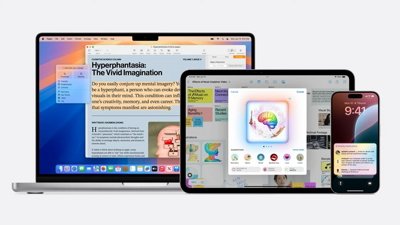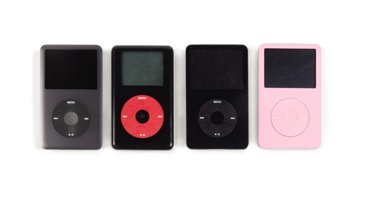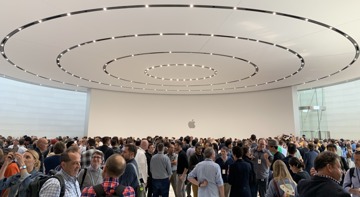Microsoft is no longer content with turning up the heat against just Apple's Mac lines and has begun a new marketing campaign that attacks the perceived additional costs of filling an iPod with music versus a Zune, but one which omits key flaws in the process.
The campaign also argues that the permanent ownership of tracks is a negative, rebuffing Apple chief Steve Jobs' long-held assertion that people want to own their music instead of renting it. As iTunes shoppers have to commit to any songs they download, they can't backtrack if they decide they don't want the music they just bought. And, since subscriptions by definition encourage exploration of music that would otherwise be too prohibitive, Zune Pass members can download "whole discographies" at will rather than cherry picking individual albums or tracks, Microsoft claims.
Reinforcing the monetary focus, the company has opted out of using the 'real' people found in its Laptop Hunter ads and has instead recruited Capital Investment Advisors expert and frequent media show guest Wes Moss to push its case. He argues that it makes more sense for iTunes customers to consider a subscription service like the Zune Pass depending on the amount of music they consume.
But, similar to the thorough dissection that followed the anti-Mac ads, criticism has already emerged that accuses Microsoft of deliberately padding the actual costs of owning an iPod and using it with the iTunes Store. Variable pricing is one of the most immediate concerns. Microsoft assumes an average cost of 99 cents per song; as many albums cost $10 or less but have more than 10 tracks, the actual cost of buying songs can dip well under that amount. Changes in pricing per song also render it more difficult to calculate a final price in either direction.
As observed by many, the campaign similarly assumes that customers are bent on filling their devices to capacity and are only using sheer quantity rather than quality. It's commonly accepted that most users only buy to provide enough headroom for their own listening demands. Also, those who buy the iPod classic, 120GB Zune or other large-capacity players are more likely to have music encoded at high or even lossless quality, swelling the size of the files themselves and greatly reducing the number of songs that can fit in the available space.
The marketing push likewise sidesteps the limitations of the Zune Pass itself. Although it's now possible to keep 10 download tracks per month, most of the downloaded songs will disappear the moment the subscription ends — leaving owners with just a fraction of what they had listened to before. Any additional songs past the first 10 also cost the same as on most other music stores and can potentially be expensive for those who plan to build large permanent music libraries.
And while all the permanent downloads come as unprotected MP3s, files downloaded as part of the subscription are locked in a Zune-specific format, forcing users to run only the Zune desktop client and use Zune players away from their PCs. The absence of a subscription option in iTunes limits iPod owners' options but also simplifies the process of leaving iTunes.
No matter the merits, Microsoft is known to be prepping more than just promotional spots to put the Zune in a new light. The company has stated it plans to introduce new players this year and may center the spotlight on the rumored Zune HD, its first touchscreen player and a response that may come two years after the iPod touch.
 Katie Marsal
Katie Marsal






-m.jpg)






 Chip Loder
Chip Loder
 Marko Zivkovic
Marko Zivkovic
 Malcolm Owen
Malcolm Owen

 William Gallagher
William Gallagher
 Christine McKee
Christine McKee
 Andrew O'Hara
Andrew O'Hara
 Andrew Orr
Andrew Orr




-m.jpg)




115 Comments
Microsoft also fails to acknowledge that if you're buying a 120gb ipod, you more than likely already own a bunch of music that you'll be loading on it.
And slacker radio is free on the iPhone and no zune version
I don't want a Zune but if Apple offered a similar pass scheme, I'd be all over it in a second.
I own a large CD collection but there's no such thing as too much music - especially when I can keep 10 tracks a month.
F@#k Microsoft.
This ad is silly!!! So full of misinformation. Image, just because you have 60 gigs, you are going to only fill it with purchased songs? Let's see-I have a PC with a 120 gig drive. I'll have to spend $40 million dollars on cheap, dumb software to use it! I better buy a Mac 128K. No big drive, no big spend! Zune, Alice, Zune. Right in the kisser!
Ballmer has nothing better to do and nothing better to sell-that Bill didn't out right steal.